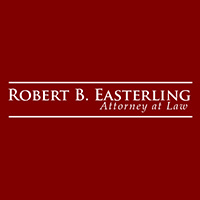Stratford Bankruptcy Lawyer, Virginia
Includes: Bankruptcy Litigation, Commercial Bankruptcy, Consumer Bankruptcy, Dissolution
Robert Bruce Easterling
✓ VERIFIEDBankruptcy & Debt, Bankruptcy, Estate, Trusts, Wills & Probate
Robert B. Easterling, Attorney at Law, in Fredericksburg, Virginia, offers legal services, specializing in bankruptcy, wills, trusts and estate planni... (more)
FREE CONSULTATION
CONTACTIrwin A. Heller
Estate Planning, Family Law, Business Organization, Bankruptcy
Status: In Good Standing
FREE CONSULTATION
CONTACTSarah E. Spiers
Business Organization, Dissolution, Foreclosure, Limited Liability Companies
Status: In Good Standing
FREE CONSULTATION
CONTACTJerome D. Ngando
Corporate, Landlord-Tenant, Bankruptcy, State Appellate Practice
Status: In Good Standing


